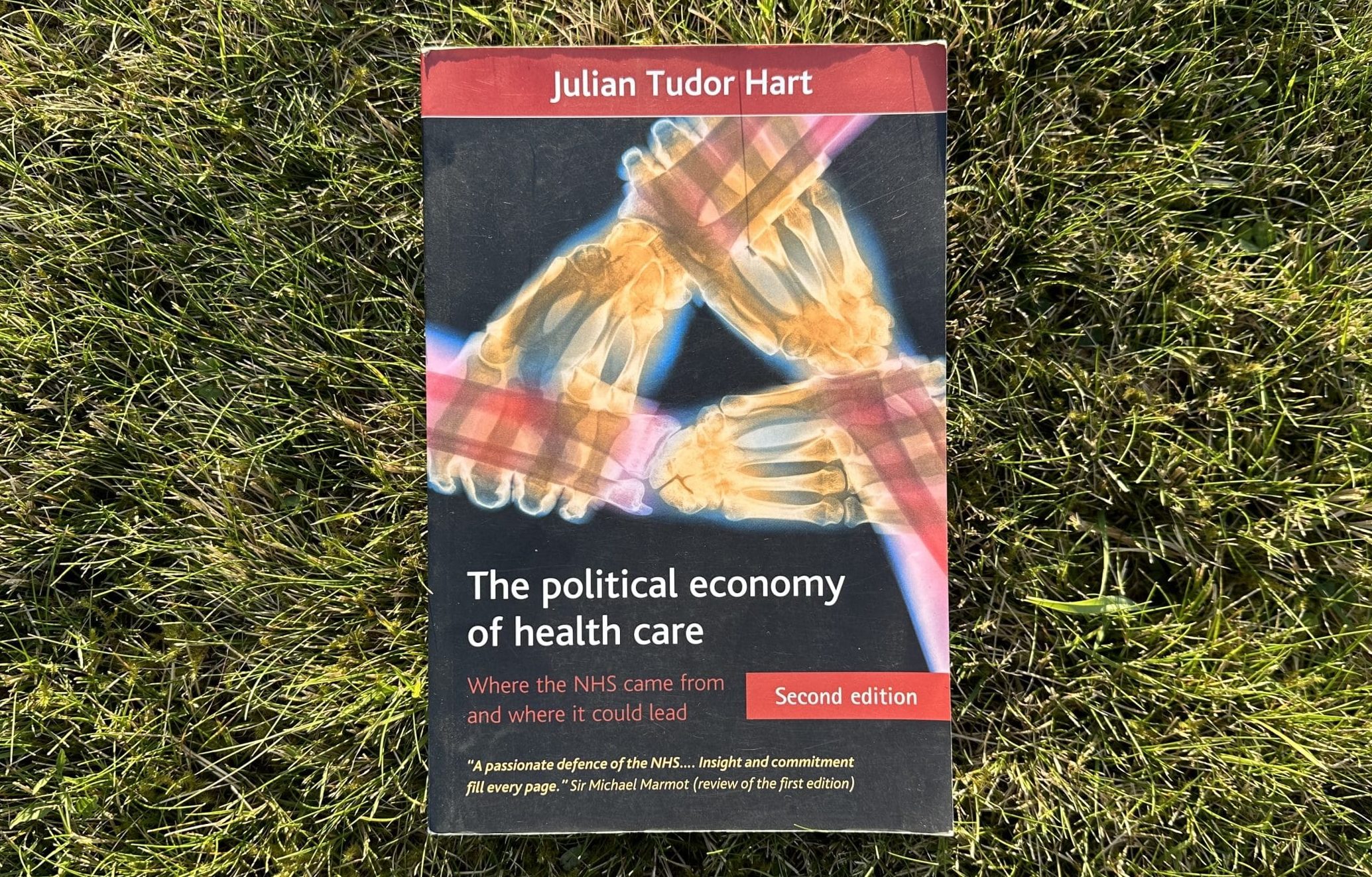 Tim Senior is a GP, Tharawal Aboriginal Corporation, Airds, Australia.
Tim Senior is a GP, Tharawal Aboriginal Corporation, Airds, Australia.
I’m tempted to suggest you shouldn’t read this brilliant book, but only for selfish reasons. Reading this book makes me realise that everything I have written has been said before, and better, by Julian Tudor Hart.
Tudor Hart, as you know, is a hero of general practice. He worked as a GP in the Welsh mining village of Glyncorrwg – describing himself in this book as “a Glyncorrwgologist, the only one in the world.” He was the first GP in the world to know the blood pressure of every one of his patients, and he did this just from seeing his patients coming in for their regular health problems, without a “health check” in sight.. He is perhaps most famous for describing the Inverse Care Law in 1971, which he describes here as “a banal truism.”
This book was written in 2010, the second edition of a 2006 book, and so there are a few sections that betray the 14 year gap between then and now. Commenting that in the near future registered patients will have to provide e-mail addresses feels like it comes from a time closer to stone tablets than Android tablets.
Tudor Hart’s warnings of what might happen in the health system from 2010 reach us in 2024 in the form of accurate predictions.
Elsewhere, Tudor Hart is excellent on the way the use of information technology in health care has been used for managerial technocratic measurement, rather than to help clinicians work more effectively, but is perhaps overly optimistic in suggesting that computers may be useful in avoiding human judgements. We are recognising increasingly now that decision support and artificial intelligence bakes in very human biases, while giving the appearance of being objective.
For the most part, though, Tudor Hart’s warnings of what might happen in the health system from 2010 reach us in 2024 in the form of accurate predictions. He takes a historical view through the formation of miners’ medical aid schemes: local community collaborations where all those employed contributed to employ doctors for their medical care. Tudor Hart convincingly makes the case that these systems formed the models for Lloyd George’s National Insurance Act in 1911, and subsequently for the formation of the National Health Service in 1946. This view of the history and pre-history of the NHS through a political lens takes in the importance of specialism and generalism, and contrasts ownership of property and ownership of one’s work. Tudor Hart’s accurate predictions arise from an understanding of the NHS as a gift economy, there for the interests of patients, that is part of and contributes to social cohesion. The move by politicians of all sides towards a market-based NHS economy, encouraged by corporate interests spying large profits is at the root of the predictions here, and the sad thing about reading them now is that it just made me wonder if it’s too late to reverse course.
Tudor Hart’s understandings of the consequences of the NHS being an opportunity for profit go well beyond the platitudes of corporates cherry picking easy patients and reducing wage bills. He shows that measurements in corporatised health services are prone to gaming (“Sticks and carrots certainly provoke movement, but in very complex systems requiring frequent judgements between conflicting priorities, it is stupid to apply methods developed for donkeys to intelligent men and women.”). He shows that a corporatised NHS can’t use its own intelligence, as it abdicates responsibility to contractors competing for consumers. He shows that the pressure to employ smaller workforces with narrower skills results in “…more process but less outcome.”
As the book goes on, Tudor Hart’s writing becomes more angry, but it doesn’t stop him finishing with a call to arms on a more optimistic note.
Throughout there is a profound understanding – a GP’s understanding that will be familiar to many readers – of the nature of the relationship between a doctor and patient, and also how fundamentally this is changed when health care is a transaction between a consumer and a service provider. Fundamentally, at times of feeling vulnerable, people want a professional that they trust and feel comfortable talking to, and a service that they feel they have some ownership over. The corporate transactional approach to health care is shown to be fundamentally a small-minded approach that, by its very nature, can’t produce the health benefits of participation in a community. Tudor Hart writes well about this, and more clearly than I have managed in this review. Throughout, I was underlying passages to quote to others.
On the conclusions of a patient safety review: “[The conclusion] contradicts the usual industrial management view, that to become more efficient, systems need to reduce their dependence on human judgements and interactions, assumed to be less reliable than machines. …[C]are systems need to become more human, more flexible and more open to judgement, not more tightly controlled.”
As the book goes on, Tudor Hart’s writing becomes more angry, but it doesn’t stop him finishing with a call to arms on a more optimistic note. Imagining a future where a health system contributes to a society based on solidarity and living well, “…that did not depend on making more profit for a boss. People could do what they did and say what they said, outside and beyond the limits set by the mean, self-important and self-serving world of business, where everything began and ended with the bottom line.” Elon Musk and Mark Zuckerberg take note!
Read this book if you’re interested in better clinical care, better health policy and a better society, even if it means you don’t have to read my writing any more!
Featured Book: Julian Tudor Hart, The political economy of health care (2nd Edition), 2010, Policy Press, paperback, 319 pages, ISBN 9781847427823, £19.99
Featured photo taken by Andrew Papanikitas, 2024







I’ve added it to my wishlist, but keep writing too, Tim!
Thanks Tim for bringing this book to my attention! Have enjoyed your writing too which exudes your passion for patient-centred care and doing this better.